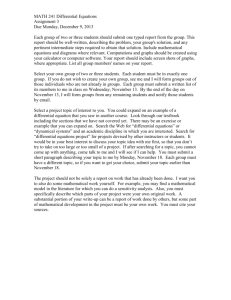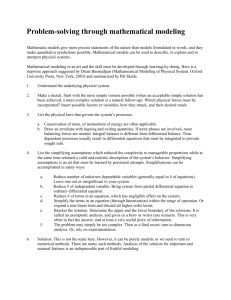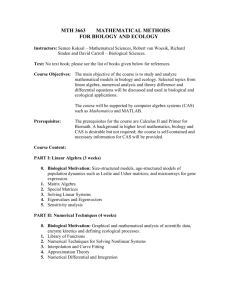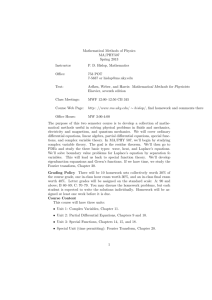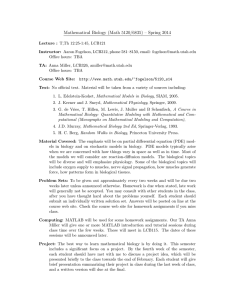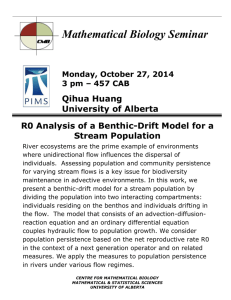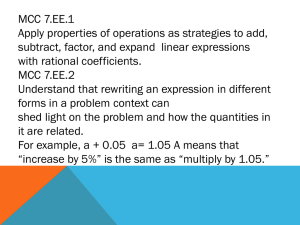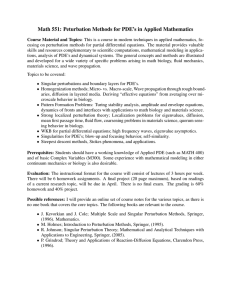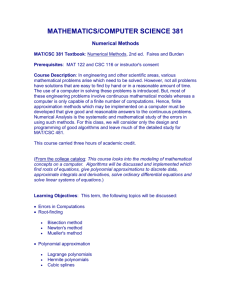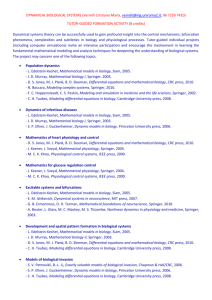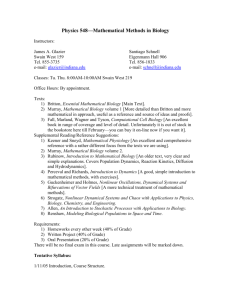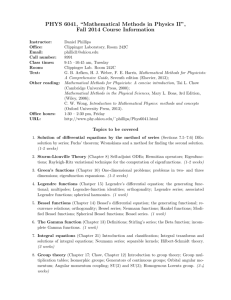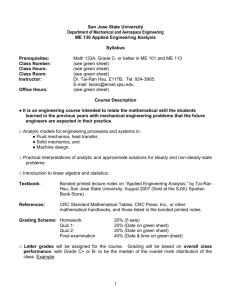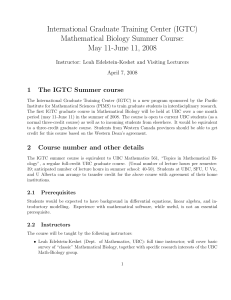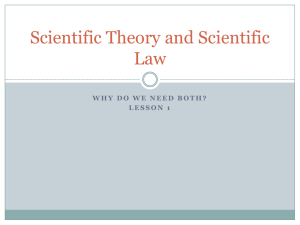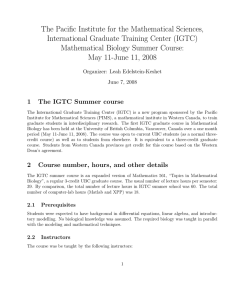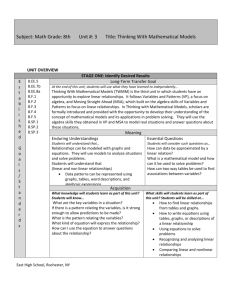APM533Syl11
advertisement
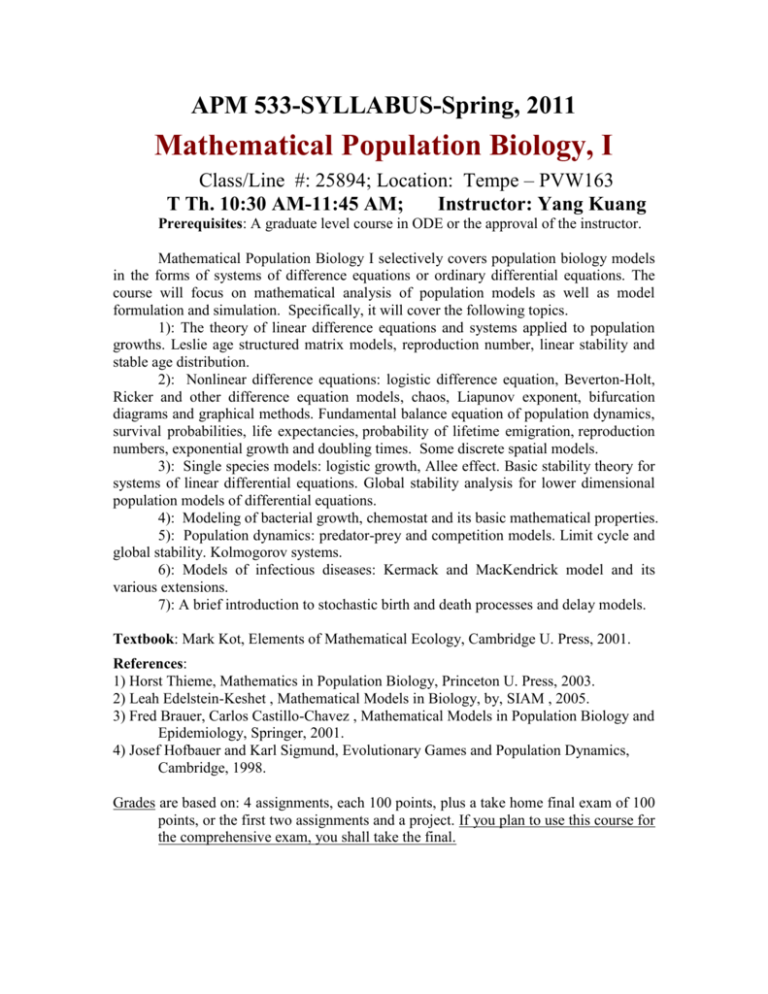
APM 533-SYLLABUS-Spring, 2011 Mathematical Population Biology, I Class/Line #: 25894; Location: Tempe – PVW163 T Th. 10:30 AM-11:45 AM; Instructor: Yang Kuang Prerequisites: A graduate level course in ODE or the approval of the instructor. Mathematical Population Biology I selectively covers population biology models in the forms of systems of difference equations or ordinary differential equations. The course will focus on mathematical analysis of population models as well as model formulation and simulation. Specifically, it will cover the following topics. 1): The theory of linear difference equations and systems applied to population growths. Leslie age structured matrix models, reproduction number, linear stability and stable age distribution. 2): Nonlinear difference equations: logistic difference equation, Beverton-Holt, Ricker and other difference equation models, chaos, Liapunov exponent, bifurcation diagrams and graphical methods. Fundamental balance equation of population dynamics, survival probabilities, life expectancies, probability of lifetime emigration, reproduction numbers, exponential growth and doubling times. Some discrete spatial models. 3): Single species models: logistic growth, Allee effect. Basic stability theory for systems of linear differential equations. Global stability analysis for lower dimensional population models of differential equations. 4): Modeling of bacterial growth, chemostat and its basic mathematical properties. 5): Population dynamics: predator-prey and competition models. Limit cycle and global stability. Kolmogorov systems. 6): Models of infectious diseases: Kermack and MacKendrick model and its various extensions. 7): A brief introduction to stochastic birth and death processes and delay models. Textbook: Mark Kot, Elements of Mathematical Ecology, Cambridge U. Press, 2001. References: 1) Horst Thieme, Mathematics in Population Biology, Princeton U. Press, 2003. 2) Leah Edelstein-Keshet , Mathematical Models in Biology, by, SIAM , 2005. 3) Fred Brauer, Carlos Castillo-Chavez , Mathematical Models in Population Biology and Epidemiology, Springer, 2001. 4) Josef Hofbauer and Karl Sigmund, Evolutionary Games and Population Dynamics, Cambridge, 1998. Grades are based on: 4 assignments, each 100 points, plus a take home final exam of 100 points, or the first two assignments and a project. If you plan to use this course for the comprehensive exam, you shall take the final.
